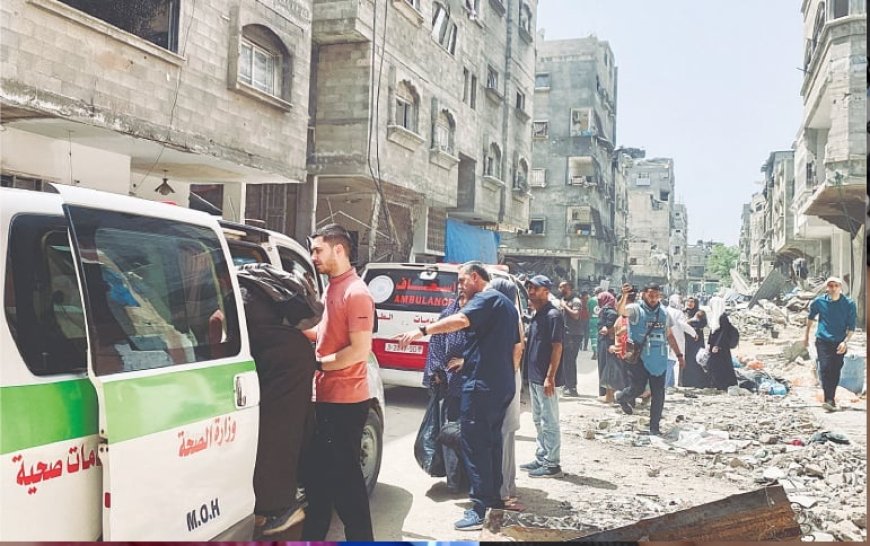Israeli forces raze parts of Jabalia camp, hit Rafah

1.
GAZA: Israeli forces thrust deeper into the Jabalia refugee camp in northern Gaza on Tuesday, laying waste to residential districts with tank and air bombardments, residents said, while airstrikes killed at least five people in the southern city of Rafah.
The Israeli army used bulldozers to clear shops and property near the local market in Jabalia refugee camp, residents said, in a military operation that began almost two weeks ago.
Israel said it has returned to the camp, where it had asserted to have dismantled Hamas months ago, to prevent the group from regrouping.
Health authorities and Gaza Civil Emergency Service said dozens of bodies were trapped under rubble of houses and on the roads in Jabalia, but were out of reach of rescue teams.
US says forging formal Israeli-Saudi ties will require calming of Gaza war
“Israel is destroying the camp on the heads of the people, the bombardment never stops, and the world is calling for more food to enter Gaza. We want to spare lives not extra food,” said Abu El-Nasser, a resident of Jabalia, who fled to Gaza City.
Gaza’s Health Ministry says 85 people have been killed and 200 injured in the last 24 hours.
Residents and medical officials said Israeli tanks were besieging the Al-Awda Hospital in Jabalia for the third day, and officials at Kamal Adwan Hospital in nearby Beit Lahiya said they were evacuating patients after it was hit by Israeli fire.
In the south, airstrikes killed three children in a house in Khan Younis and at least five people including three children i n a home in Rafah.
East of Khan Younis, residents said they were fleeing Khuzaa town after Israeli troops began an incursion on the eastern edge of the territory, bulldozing across the border fence.
“Bombing everywhere, people are leaving in panic. It was a surprising incursion,” one resident from Khuzaa told Reuters by phone as he and his family were leaving.
In a separate development, the US envoy to Jerusalem said on Tuesday that forging formal Israeli-Saudi relations as part of an emerging trilateral deal involving Washington would require a calming of the Gaza war and a discussion of prospects for Palestinian governance.
“There’s going to have to be some period of quiet, I think, in Gaza, and there’s going to have to be a conversation about how do you deal with the question of the future of Palestinian governance,” ambassador Jack Lew said.
“My view is that strategic benefit is worth taking the risk of getting into that conversation about. But that is a decision that the government of Israel will have to make and the people of Israel will have to make,” he told a conference hosted by the Israel Democracy Institute (IDI) think-tank.


















































